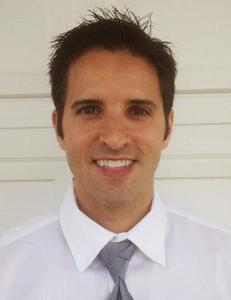ESP Biography
NICHOLAS DWORK, Electrical Engineering graduate student
|
Major: Electrical Engineering College/Employer: Stanford Year of Graduation: 2019 |

|
Brief Biographical Sketch:
Dr. Dwork received a PhD in Electrical Engineering from Stanford University in January of 2019 specializing in medical imaging. He has developed a new method for diagnosing cancer, and has worked on computer vision products in use by Navy submarines and by the Special Forces. His expertise has resolved ambiguities legal testimony. And he has taught for Stanford's Pre-Collegiate Summer Institute, Stanford's International Institutes, and Stanford University. He now works on improving MRI as a member of Stanford's Magnetic Resonance Systems Research Laboratory. Past Classes(Clicking a class title will bring you to the course's section of the corresponding course catalog)M6219: Intelligent Machines: How Computers Learn in Splash Spring 2018 (May. 05 - 06, 2018)
Computers can now learn. We have taught our computers to recognize language, imagery, scenery, and more. Unlike the brain, we completely understand the computational device that is a computer. And so learning is no longer an abstract concept but a mathematical process.
In this talk, I'll introduce the student to optimization, the mathematics of computer learning. I'll show some optimization techniques of increasing sophistication, demonstrating how we can make computers learn faster. Finally, we'll use these techniques to solve some interesting problems.
E5097: Introduction to Electric Circuit Elements in Splash Fall 2016 (Dec. 03 - 04, 2016)
In this class we will learn about the fundamental circuit elements and how they work. Specifically, we'll be discussing the following: battery, resistor, capacitor, transistor, and logic gates.
M4791: Finding the Best - An Introduction to Optimization in Splash Spring 2016 (Apr. 09 - 10, 2016)
Math is now often used to find the "best" answer. Examples include: finding the path to get the rocket home with the smallest amount of fuel, or how to best use pesticide to save plants without making superbugs. Answering questions like these is the subject of Optimization. In this talk, I'll introduce the student to optimization, show them some of the techniques used in optimization, and answer some real world problems using the techniques that I showed.
M4460: The Beauty of Advanced Mathematics in Splash Fall 2015 (Nov. 07 - 08, 2015)
Math is often described as "beautiful" and described as "artistic". But what does this mean? In this lecture, we'll look at the similarities between math and art, go through some exercises where we must think artistically in order to accomplish math, and see some recent beautiful mathematical accomplishments.
M4096: Methods of Mathematical Proofs in Splash Spring 2015 (Apr. 11 - 12, 2015)
This class will introduce the students to the logic that is used to prove mathematical statements. Examples will include direct proof, proof by contradiction, and proof by induction. The student will be exposed to pure mathematics, and gain an understanding of the difference between pure and applied mathematics.
M3862: The Beauty and Power of Advanced Math in Splash Fall 2014 (Nov. 08 - 09, 2014)
Math is fundamentally the search for truth. In this lecture I will show students how this search is conducted. We will take a few steps of this journey together. We will see some powerful truths identified with math. And we will see advanced areas where this search is currently taking place.
|
|
